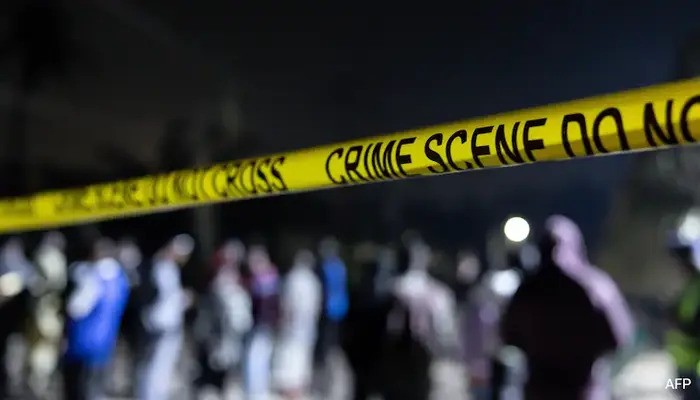The Quetta bomb blast has once again shaken southwestern Pakistan, leaving at least 11 people dead and many others injured during a public rally late Tuesday. The attack targeted a gathering held to mark the anniversary of nationalist leader Sardar Ataullah Mengal’s death, drawing sharp concern over security lapses in the region.
The Attack and Its Impact
The explosion struck as participants assembled in Quetta, a city already familiar with violence. According to government official Hamza Shafaat, the rally was intended to honor the late provincial chief minister, but it turned into a scene of chaos and mourning within seconds.
Emergency services rushed to the site, where injured participants lay on the ground amid wreckage and debris. Hospitals across the city received dozens of victims, stretching their capacity and medical resources. Families frantically searched for loved ones, while authorities worked to confirm the final death toll.
Historical Context of the Rally
The rally carried symbolic importance. It commemorated Sardar Ataullah Mengal, a nationalist leader who served as chief minister of Balochistan and left a lasting influence on the province’s politics. His followers had gathered in large numbers to mark his anniversary, reflecting his enduring legacy.
However, what was meant to be a peaceful remembrance turned into a devastating event, underscoring the persistent instability in Balochistan. This region has long faced militancy, ethnic tensions, and political unrest, making rallies and large gatherings vulnerable targets.
Read: PM Directs Swift Relief and Restoration in Flood-Hit Areas
Immediate Response from Authorities
Following the blast, security forces cordoned off the area to prevent further threats and to assist in rescue operations. Bomb disposal teams arrived to investigate the type of explosive device used, while law enforcement agencies launched an inquiry to determine whether the attack was planned locally or supported by external groups.
Government officials condemned the violence, labeling it a cowardly attempt to destabilize peace efforts in the province. Prime Minister Shehbaz Sharif expressed grief over the loss of lives and directed provincial authorities to ensure the injured received proper treatment.
Rising Concerns About Security
This attack adds to a series of violent incidents that have targeted public spaces in Pakistan. Quetta, in particular, has remained one of the most vulnerable cities due to its strategic location and history of insurgency. Analysts point out that militant groups often exploit gatherings with symbolic or political significance to send a broader message of defiance to the state.
Security experts argue that despite years of counterterrorism operations, gaps remain in intelligence sharing and preventive measures. They stress the need for stronger surveillance and stricter protection of political and cultural events in volatile regions.
The Human Cost
Beyond the statistics, the Quetta bomb blast has inflicted deep emotional scars on families and communities. Many of the victims were ordinary citizens who attended the rally to pay respect to their leader. Survivors recall scenes of panic, where cries for help echoed amid smoke and confusion.
Local residents opened their homes to provide shelter and support for those stranded after the explosion. Civil society groups have already begun mobilizing resources to assist victims’ families with food, shelter, and medical aid. Yet, the sense of insecurity remains heavy, as many question when such tragedies will finally come to an end.
National and International Reactions
The federal government has vowed to take stern action against the perpetrators. Political parties across Pakistan have condemned the attack, calling it an assault on democratic expression and civic freedoms.
International organizations monitoring South Asia also voiced concern. Human rights groups urged the government to prioritize civilian safety in conflict-prone areas. Foreign missions in Islamabad expressed condolences and solidarity with the victims, while urging Pakistan to step up counterterrorism measures.
Broader Implications for Balochistan
The blast highlights the fragile security landscape of Balochistan, where grievances over political representation and economic disparities often intersect with militant violence. Attacks like this not only target individuals but also threaten social cohesion and the region’s development prospects.
Observers warn that instability in Balochistan could undermine ongoing infrastructure projects and foreign investments linked to the China-Pakistan Economic Corridor (CPEC). For residents, however, the primary concern remains personal safety and the ability to live without constant fear of violence.
Calls for Unity and Resilience
In the wake of the attack, leaders and community figures have urged citizens to stand united against violence. They emphasize that such incidents should not weaken the resolve of the people but instead strengthen their demand for peace and justice.
Religious leaders, civil society activists, and academics have all called for dialogue, reconciliation, and long-term reforms to address the root causes of militancy. Their voices stress that while security measures are vital, sustainable peace will require addressing political grievances, social inequality, and regional marginalization
Follow us on Instagram, YouTube, Facebook,, X and TikTok for latest updates
